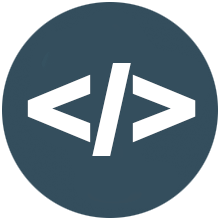
The search landscape is rapidly evolving as artificial intelligence (AI) increasingly complements traditional search engines. Recent data shows that 50% of users are turning to AI tools instead of Google, driven by a preference for conversational interactions.
This shift presents challenges and opportunities for businesses and content creators, emphasizing the need to maintain visibility and relevance in a digital world where AI is reshaping how users access information.
Key Takeaways
- AI complements rather than replaces traditional search engines
- 50% of users report using Google less frequently, favouring AI tools (source)
- Search behaviour is shifting toward conversational AI interactions (source)
- SEO strategies must now optimize for both traditional search and AI platforms
The Evolving Search Landscape
Current Trends in AI Search Usage
Recent data shows a significant shift in how people search for information online. According to industry surveys:
- 35% of marketers now use AI tools in their work
- 54% of SEO professionals incorporate AI into their strategies
- Major platforms like Google are integrating AI through Search Generative Experience (SGE)
How Users Are Adapting
Users are increasingly turning to AI platforms like:
- Google Gemini
- Bing Copilot
- ChatGPT
- Claude
These tools excel at providing quick, direct answers to “what, why, and how” queries, offering a more conversational experience than traditional search engines.
Impact on SEO Strategy
The Dual Audience: Humans and Machines
Modern content creation requires a balanced approach:
- Human-focused content that engages and provides value
- Machine-optimized content that algorithms can easily process
- AI-friendly content (approximately 20% of total content)
Best Practices for AI-Optimized Content
Structure and Format
Content should be:
- Clearly structured with logical headings
- Rich in relevant, specific details
- Easy to scan and digest
- Organized in a hierarchical format
Example of AI-Friendly Content Structure
Let’s examine an effective format using a recipe example:
Title: How to Make Perfect Homemade Pizza
Introduction: Clear purpose and value proposition
Structured Content:
- Ingredients (listed precisely)
- Step-by-step instructions
- Tips for success
- Troubleshooting guidance
What to Avoid
- Informal, unstructured writing
- Vague instructions or measurements
- Excessive personal anecdotes
- Inconsistent formatting
The Future of Search and SEO
Integration of Traditional and AI Search
The future likely involves a hybrid approach where:
- AI handles specific, straightforward queries
- Traditional search engines remain vital for:
- Complex research
- Multiple perspectives
- Source verification
- Visual content discovery
Adapting Your SEO Strategy
Content Structure:
- Use clear hierarchical headings
- Implement schema markup
- Create featured snippet-optimized content
Content Quality:
- Focus on authoritative information
- Provide comprehensive coverage
- Include verifiable data and sources
Technical Optimization:
- Maintain clean, crawlable site structure
- Optimize for natural language queries
- Implement structured data
Measuring Success
Track these metrics to gauge effectiveness:
- AI citation rates
- Featured snippet appearances
- Traditional search rankings
- User engagement metrics
- Conversion rates
Conclusion
The emergence of AI in search isn’t marking the end of traditional search engines, but rather the beginning of a new era in digital discovery. Success in this evolving landscape requires adapting to both AI and traditional search patterns while maintaining a focus on delivering valuable, well-structured content to users.
Read the original, complete article: https://warrenlainenaida.net/will-artificial-intelligence-replace-search-engines-for-seo/
- Log in to post comments
